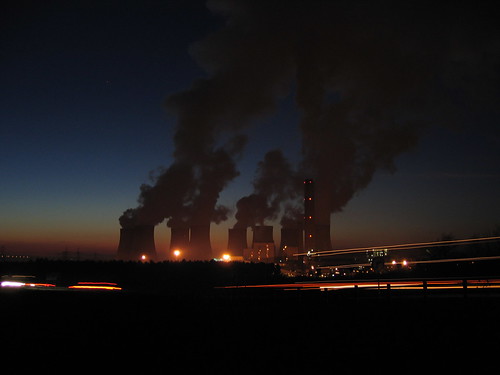A colleague of mine, Dr John Bruno forwarded me a very well written article from BBC news on the top 10 of climate skepticism (link). Also on BBC News recently: responses to a climate change questionnaire sent to the 61 “accredited experts in climate and related scientific discipline” (of which 14 replied), with such detailed answers as “rising CO2 might help “green” the world, with increases in food supply”. Indeed.
| 1. EVIDENCE THAT THE EARTH’S TEMPERATURE IS GETTING WARMER IS UNCLEAR | |
| Sceptic | Counter |
| Instruments show there has been some warming of the Earth’s surface since 1979, but the actual value is subject to large errors. Most long-term data comes from surface weather stations. Many of these are in urban centres which have expanded in both size and energy use. When these stations observe a temperature rise, they are simply measuring the “urban heat island effect”. In addition, coverage is patchy, with some regions of the world almost devoid of instruments. Data going back further than a century or two is derived from “proxy” indicators such as tree-rings and stalactites which, again, are subject to large errors. | Warming is unequivocal. Weather stations, ocean measurements, decreases in snow cover, reductions in Arctic sea ice, longer growing seasons, balloon measurements, boreholes and satellites all show results consistent with the surface record of warming. The urban heat island effect is real but small; and it has been studied and corrected for. Analyses by Nasa for example use only rural stations to calculate trends. Recently, work has shown that if you analyse long-term global temperature rise for windy days and calm days separately, there is no difference. If the urban heat island effect were large, you would expect to see a bigger trend for calm days when more of the heat stays in the city. Furthermore, the pattern of warming globally doesn’t resemble the pattern of urbanisation, with the greatest warming seen in the Arctic and northern high latitudes. Globally, there is a warming trend of about 0.8C since 1900, more than half of which has occurred since 1979. |
| 2. IF THE AVERAGE TEMPERATURE WAS RISING, IT HAS NOW STOPPED | |
| Sceptic | Counter |
| Since 1998 – almost a decade – the record, as determined by observations from satellites and balloon radiosondes, shows no warming. | 1998 was an exceptionally warm year because of the strong El Nino event. Variability from year to year is expected, and picking a specific warm year to start an analysis is “cherry-picking”; if you picked 1997 or 1999 you would see a sharper rise. Even so, the linear trends since 1998 are still positive. |
| 3. THE EARTH HAS BEEN WARMER IN THE RECENT PAST | |
| Sceptic | Counter |

 Two interesting news articles have come out of Harvard this week: firstly an excellent speech by
Two interesting news articles have come out of Harvard this week: firstly an excellent speech by  A new study published in the Proceedings of the
A new study published in the Proceedings of the  Heidi Schuttenberg (co-author of
Heidi Schuttenberg (co-author of